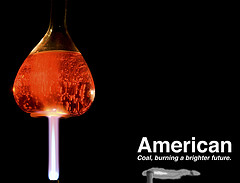Commodities: An Overview
goods are products traded exclusively on the basis of price. The products are usually undifferentiated products, goods or services that are not traded based on quality plus features, only on price. in the past, commodities were items of worth, of uniform quality that were produced in large quantities by many various producers. The items from every different producer were regarded as equivalent. Commodities are described by an underlying contract plus standard, rather than the quality of the product.
History
Chicago was the birth place of the first goods market, way back in the 1840s. Farmers would bring their own wheat to the market plus exchange it for good, hard cash. Futures contracts developed from there. A farmer would agreement with a dealer to sell a set amount of produce to your pet at a set date for a set price. It was soothing for both parties since the character knew how much he was going to get paid and the dealer understood exactly how much he was going to pay for these commodities.
This exercise of commodities trading developed over the years that ensued. the particular farmer would decide not to sell and cede the particular contract to another farmer in order to fulfil, or the dealer may decide that he did not would like the produce anymore and then on-sell the contract to another dealer. Naturally supply plus demand entered the formula. If the harvests were bad, the produce would get a much higher price and if the crops were plentiful, a leaner price won.
Before long, speculators were within on the act. They began trading the futures agreements in the hope of buying the particular commodities at a low price and marketing these for a handsome income.
What defines an effectively tradable commodity?
To effectively trade, commodities must:
·Be standardized. If the commodities commercial or agricultural, it must be natural.
·Have an adequate shelf-life, in case these are agricultural.
·There should be sufficient fluctuation in provide and concomitantly price. The reason for this is that without the danger factor, profits are miniscule and unappetising.
Examples of goods are: electricity, wheat, chemical substances, metals, pork bellies, ram memory chips, labour and foreign currency.
Difference between commodities plus stocks
The main difference between shares and futures contracts from a trading perspective is that, in contrast to stocks, which you could keep for a very long time, commodities are kept for a very short time just. Futures contracts are used to off-set commodity price-fluctuation risks or to take advantage of price movements, instead of trading the actual cash goods.
How are commodities traded?
product Future and option investing take place at exchanges such as the Chicago Board of industry, Euronext. liffe, London metallic Exchange and the New York cargo Exchange, and other online investing systems. At the exchanges, places are provided, each designated for a different futures contract. all those trading on the floor must be users of the exchange and authorized with the Commodity Futures investing Commission. Those traders, who are not members, work through broker agent firms who are.
To conclude
product future option trading will be both complex and dangerous, so the shoe may not always fit just anybody’s feet. If you are considering commodity long term option trading, you should assess how much you are prepared to drop should push come to push. Choose a trading method that you are comfortable with and that is best suited in order to achieving your objectives. The bottom line in commodity future choice trading is that, if you workout good judgment and handle your risks effectively, goods trading are likely to richly incentive your efforts!
Find More Commodities Articles

